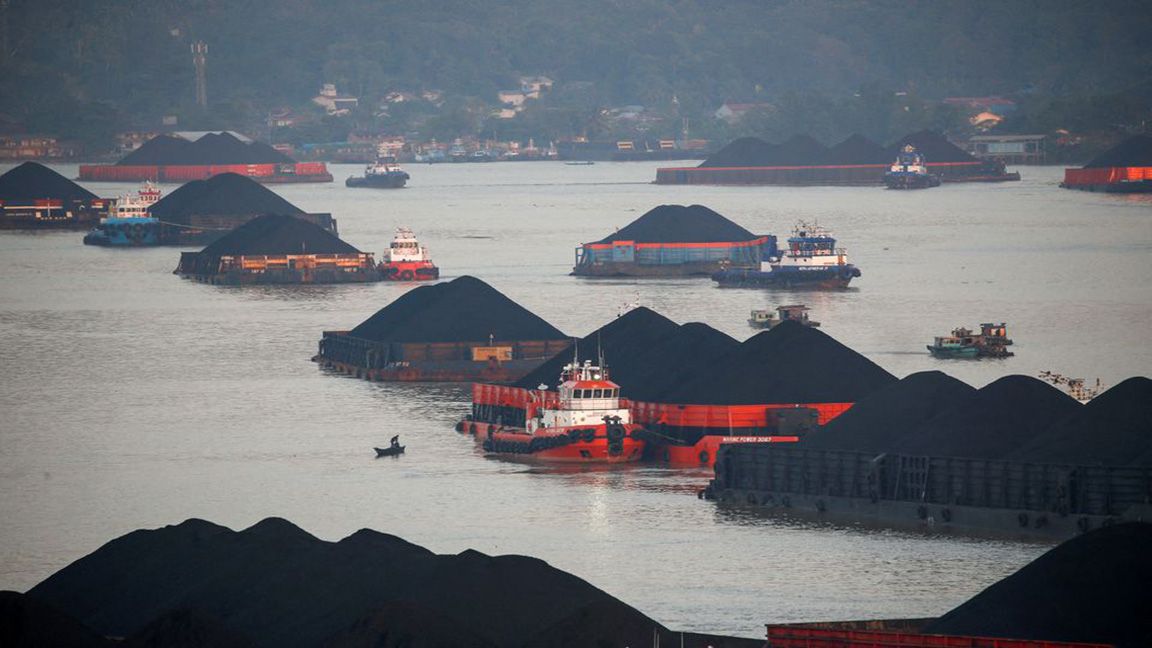The Philippines is requesting Indonesia, the largest supplier of thermal coal, to lift its coal export ban that took effect on January 1 as this would adversely affect countries like the Philippines, which greatly depend on coal-fired power plants for its energy production.
WITH 60 percent of our power sources dependent on coal, the Philippines is urging the largest supplier of thermal coal, Indonesia, to lift its ban on coal exports that took effect last January 1 as it would be “detrimental to economies that rely on coal-fired power generation systems.”
DoE Secretary Alfonso Cusi sent a letter on January 6 to Indonesian Minister of Energy and Mineral Resources Afirin Tasrif, appealing for the ban lifting specifically for the Philippines.
Indonesia’s ban would be “detrimental to economies that rely on coal-fired power generation systems like the Philippines,” Cusi’s letter said.
Indonesia, the world’s biggest thermal coal exporter, suspended exports on Jan. 1 after its state power utility reported dangerously low inventory levels of the fuel at its domestic power stations, Reuters reported.
The Philippines is expected to be affected by Indonesia’s ban because it remains heavily reliant on coal for power generation.
“Power generated from coal comprises about 60% of the country’s power demand,” Cusi said.
Coal imports
Data from the DoE showed the Philippines imported 69.51 percent of its 42.476 million metric tons (MMT) of coal supply in 2020. The Philippines imported 2.3 million metric tons of coal monthly from Indonesia in 2021.
Cusi requested the Department of Foreign Affairs to “intercede and appeal on behalf of the Philippines, through the Association of Southeast Asian Nations (ASEAN) Cooperation mechanism.”
Foreign Affairs Assistant Secretary Eduardo R. Meñez said the letter would be forwarded to the Indonesian government.
“It will be a sovereign decision of Indonesia, perhaps appeals from different countries can change the policy,” he said in a text message.
Other countries such as Japan, South Korea, China and India have also asked Indonesia to lift the ban.
Energy independence
This is a sign for the country to pursue energy independence, energy experts said.
Climate Financing Financial Futures Center Founder Sara Jane D. Ahmed said the issue surrounding Indonesia’s coal export ban reflects lock-in risks for fossil fuel-importing countries like the Philippines.
“Global prices in theory would increase with the halting of Indonesian coal exports, which may be passed onto Filipino consumers and the industry. It’s time to focus attention on energy security and price stability through domestic renewables, storage and grid upgrades,” she said in a Messenger chat.
Sufficient coal supply
Earlier, Philippine companies operating coal-fired power plants said they have sufficient coal supply for at least 30 days. They are also tapping other suppliers; in case the ban extends beyond January.
“In the immediate short-term our coal supply should be safe. However, coal from other countries is likely to be expensive, and will also continue to increase in price as other major coal importers in Asia such as Japan, Korea, and Taiwan, will also need to look for other suppliers,” Verne Energy Solutions Chief Executive Johnny A. Altomonte told BusinessWorld.
Altomonte said the government should start preparing contingency measures.
“They should be looking for additional suppliers, perhaps implement demand-side management measures as well like incentive-based or time-based demand response programs,” he said.
The DoE said its Electric Power Industry Management and Energy Resource Development Bureaus were set to meet with coal power plant generators on Tuesday “to discuss potential strategies and the way forward.”
Touted as the world’s largest thermal coal exporter, Indonesia decided to suspend exports for the entire month of January no thanks to pines is highly reliant on coal, as reflected in its monthly importation of 2.3 million metric tons of coal from Indonesia last year.
Meeting with gencos
The DOE’s Electric Power Industry Management and Energy Resource Development Bureaus are scheduled to meet with the country’s coal power plant generators today, Tuesday, “to discuss potential strategies and the way forward.”
Sought for comment, Manila Electric Co. (Meralco) Head of Utility Economics Lawrence S. Fernandez said the ban will affect three of the power distributor’s suppliers.
These are: San Buenaventura (455 MW), Quezon Power (440 MW) and Panay Energy (70 MW).
“According to our suppliers, they have sufficient supply of coal for at least two months,” Fernandez said. “In the coming couple of months, we are assured that there will be no supply disruption.”
He added that the Philippines may also opt to source coal from other countries aside from Indonesia, citing Australia, for instance.
However, Fernandez noted that there may be discrepancies in terms of pricing. “We have to wait and see what our generation suppliers will tell us as to what will happen to prices if they source from another [coal] supplier,” he said.
Tags: #Indonesia, #DoE, #coalexportban, #coal-firedplants, #energy
